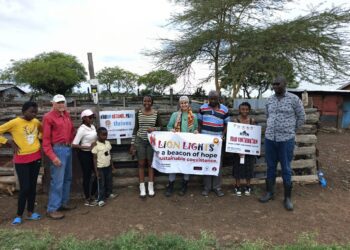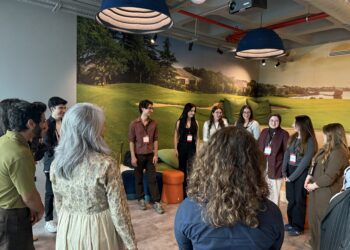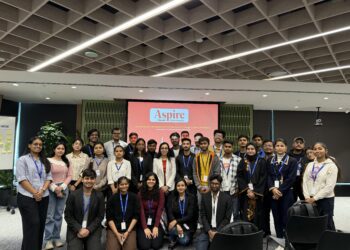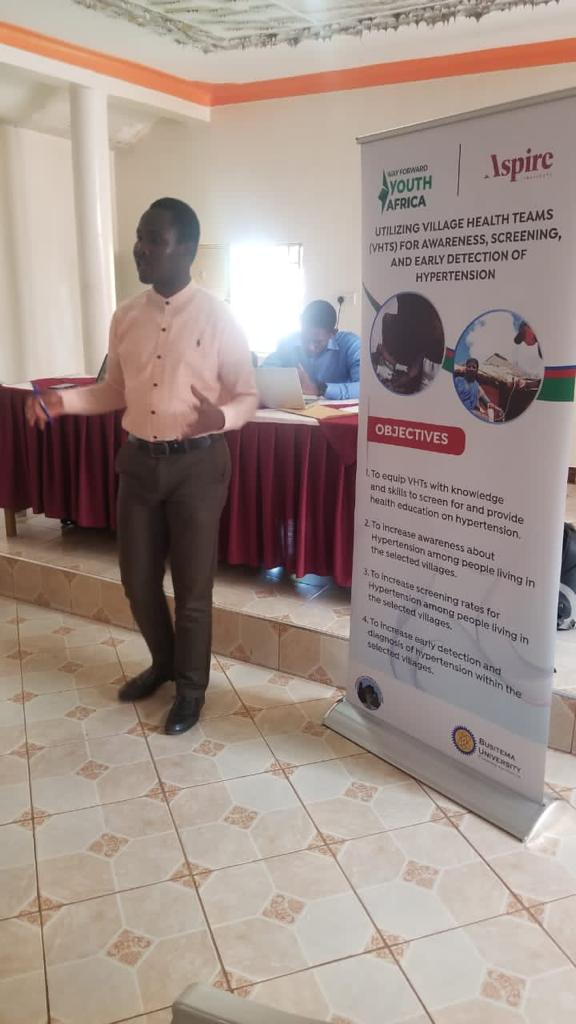
Growing up in Entebbe, Uganda, Aspire Leaders Program alumnus and Community Action Award winner Andrew Marvin Kanyike was shaped by a family that deeply valued education. His mother, a teacher, and his father, a businessman, cultivated an environment that nurtured Andrew’s medical aspirations. “My father was determined to see one of his children become a doctor,” Andrew remembers. His uncle’s success in medical school provided additional inspiration: “My father’s young brother managed to go to medical school and do medicine. He was a big inspiration to me.”
This early encouragement paid off when Andrew earned a government scholarship to study medicine at a public university. His interest in non-communicable diseases and hypertension stems from both personal and professional experiences.
“As a young doctor who has been a caretaker of a person with an NCD and witnessed the catastrophic expenditures and the effect it can weigh on the family, I am deeply passionate about this field,” Andrew explains. “I have worked at the emergency department and have seen a lot of young people being diagnosed with hypertension and diabetes. I feel like I could also be in their shoes.”
Community Action Award
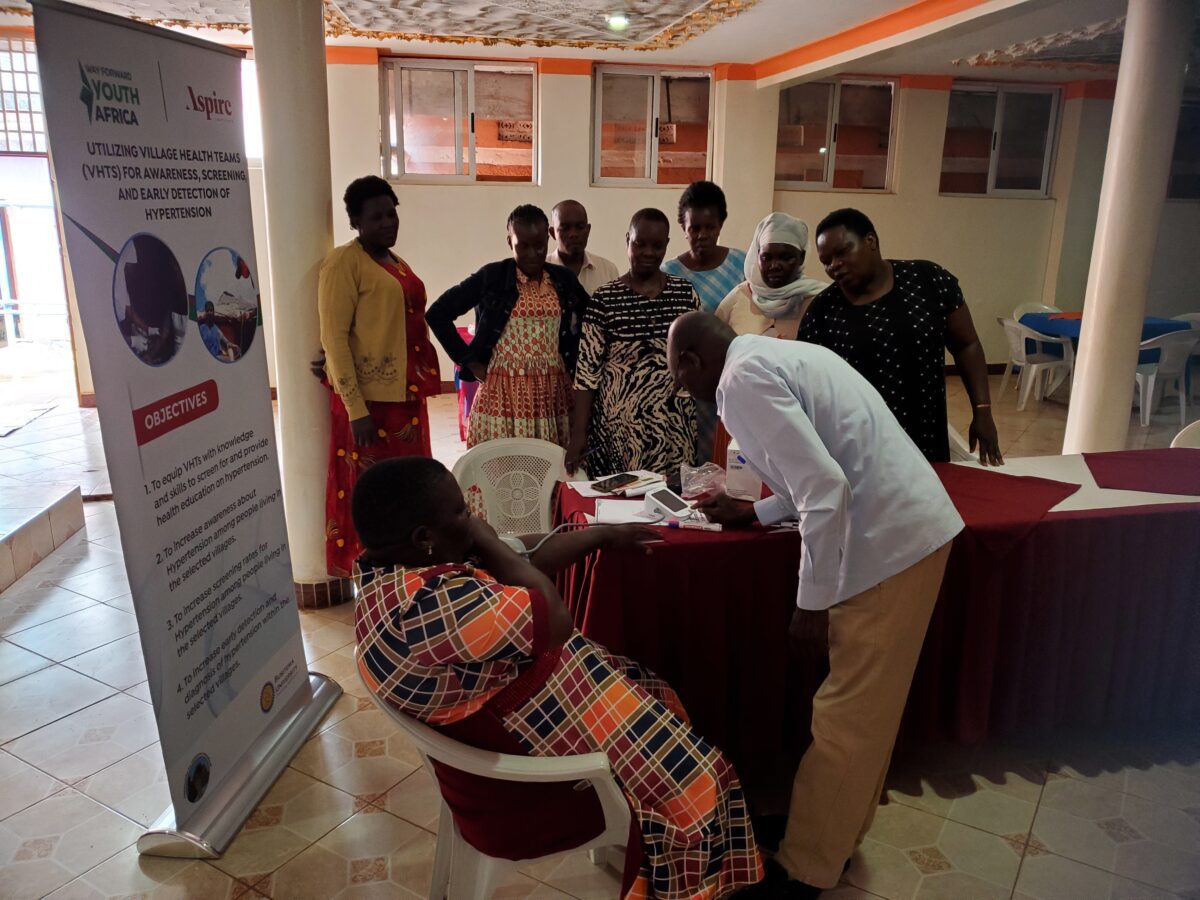
In 2023, Andrew won the Community Action Award for his hypertension screening project. The project trained community health workers to conduct blood pressure screenings, reaching 5,214 individuals against the initial target of 3,000.
“We trained health workers and used part of the money to procure blood pressure machines,” Andrew explains. “According to the protocol we were using, if the community health worker found a person with high blood pressure, they had to go back on another occasion to recheck them.” The project identified that 22% of screened individuals had persistently elevated blood pressure. They were then referred to nearby NCD clinics.
The project team conducted in-depth interviews with health workers to understand their challenges and needs. “We had these interviews with them at the start before we trained them so that it could inform how we engage [with] them,” says Andrew. These findings are published as a scientific paper, with another paper currently under peer review.
From Local Impact to National Impact
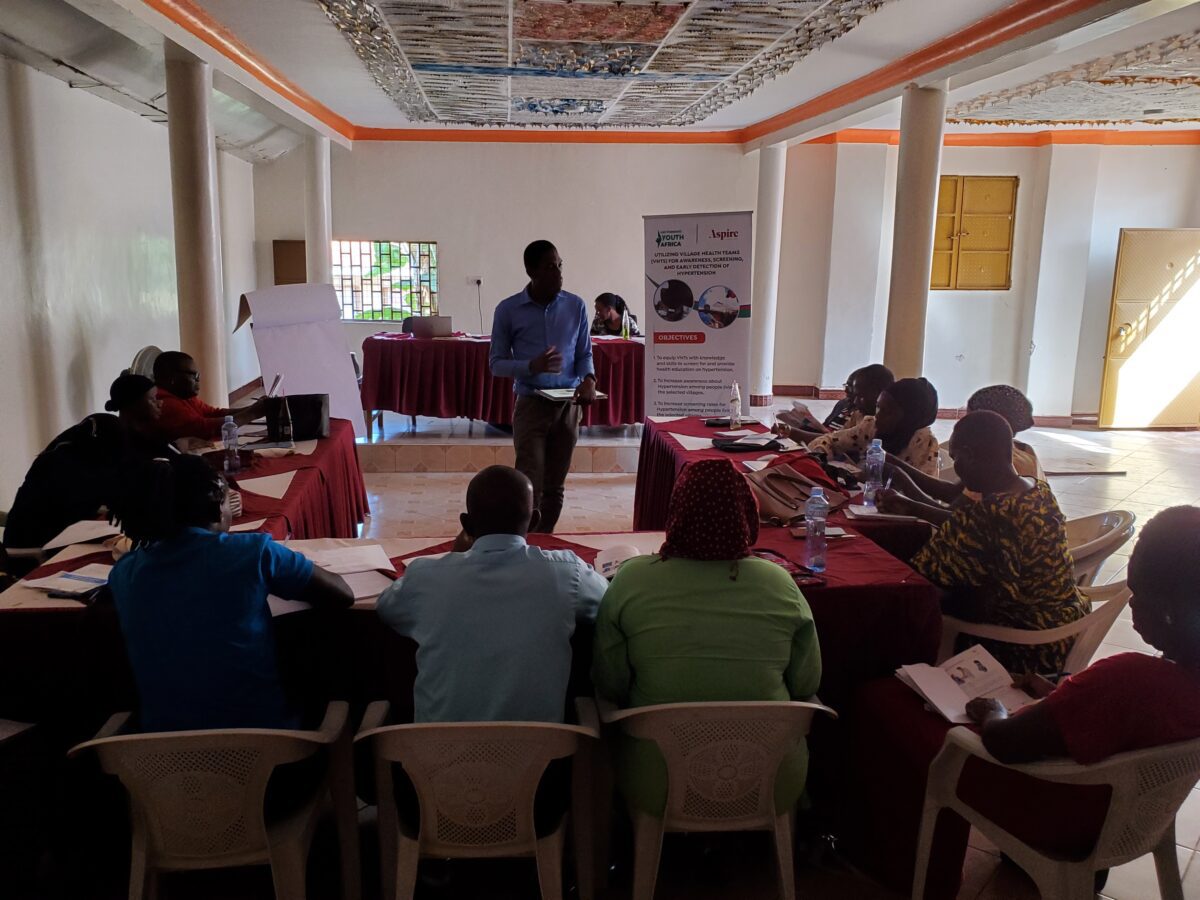
During the project, Andrew discovered patient support groups where members pool funds to purchase medications during stockouts. This finding sparked a new direction in his work.
Driven by this insight, Andrew forged a collaborative partnership with Prof. Jeremy Schwartz at Yale University and the NGO Resolve to Save Lives. This partnership aims to develop a comprehensive national model for Uganda’s hypertension control program. “Our goal is to conduct a nationwide exploration of existing community health groups,” Andrew explains. “We’ll map these groups, analyze their funding mechanisms, and extract critical lessons to design a more efficient and sustainable healthcare model.”
The initiative aims to understand whether patients involved in these support groups have better disease control compared to those who aren’t. The first phase of this study will begin in January 2025, following institutional review board approvals.
Research and Future Plans
The Community Action Award has opened numerous doors for Andrew. “If I had not ventured into this particular project, I wouldn’t have learned about these groups,” he reflects. “Now I’m scaling from just a community project to working on a national project that could impact policy change.”
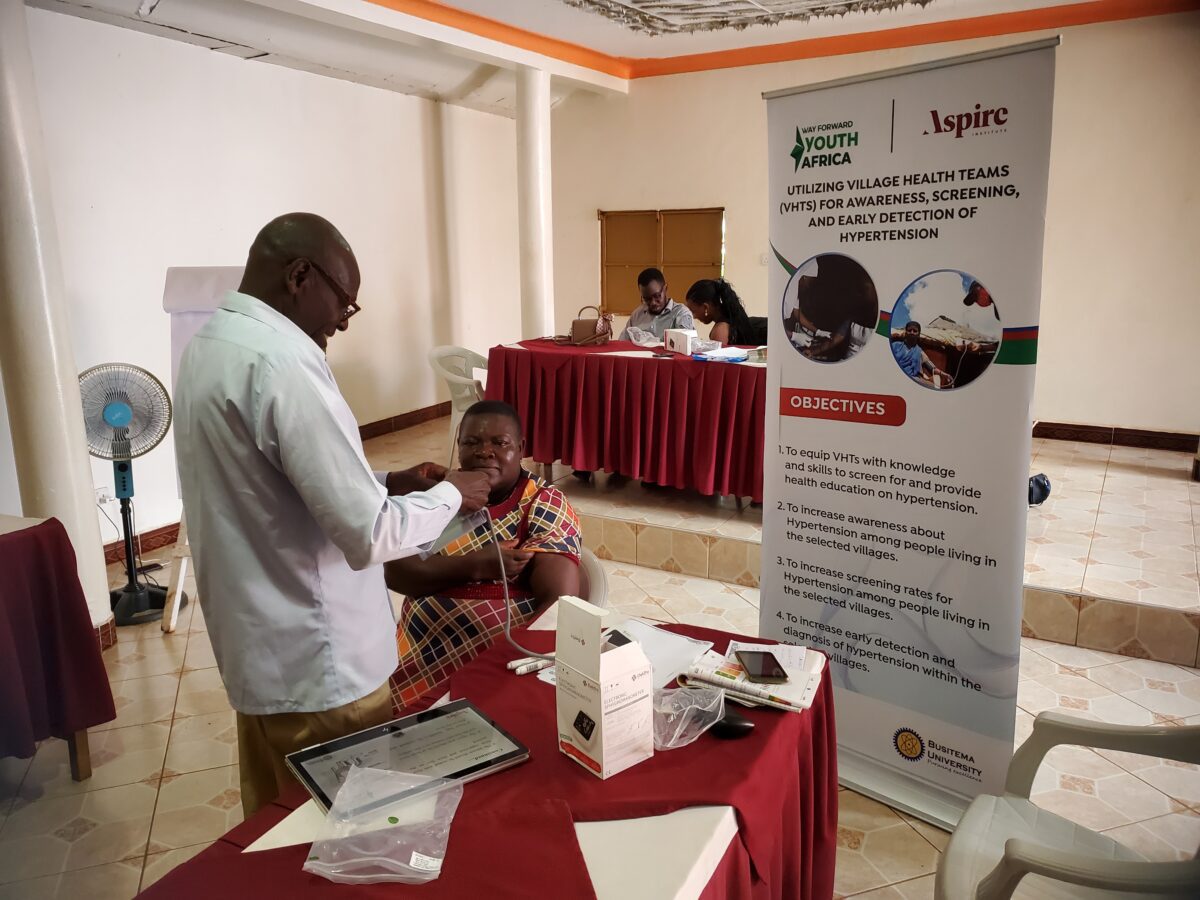
“During my fellowship at Washington University in St. Louis, I presented my work to colleagues who were intrigued by our approach,” Andrew recalls. “The response was overwhelmingly positive, leading to promising partnerships that extend the potential impact of our research.”
Andrew has also been accepted into the PhD program at the University of Exeter, where he plans to study diabetes mellitus patterns in Uganda and Africa. “In Uganda and most African countries, we have very thin and young people with diabetes,” he notes. This is in contrast with Western countries’ patterns where diabetes typically affects older, overweight individuals.
The program will allow Andrew to split his time between the UK and Uganda. “It is an integrated program, so I will be partly in the UK, but the fieldwork and all my data will be collected from Uganda,” he explains. Through this arrangement, he’ll continue his work of bridging research with practical community health solutions.

